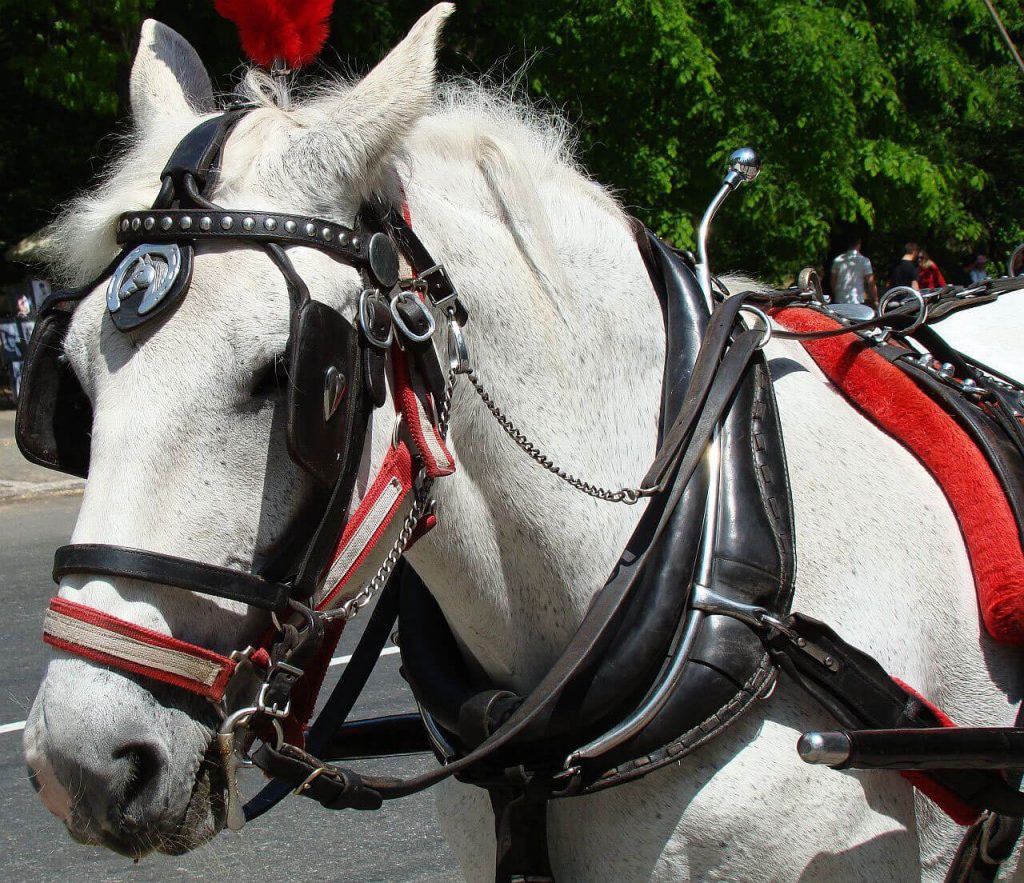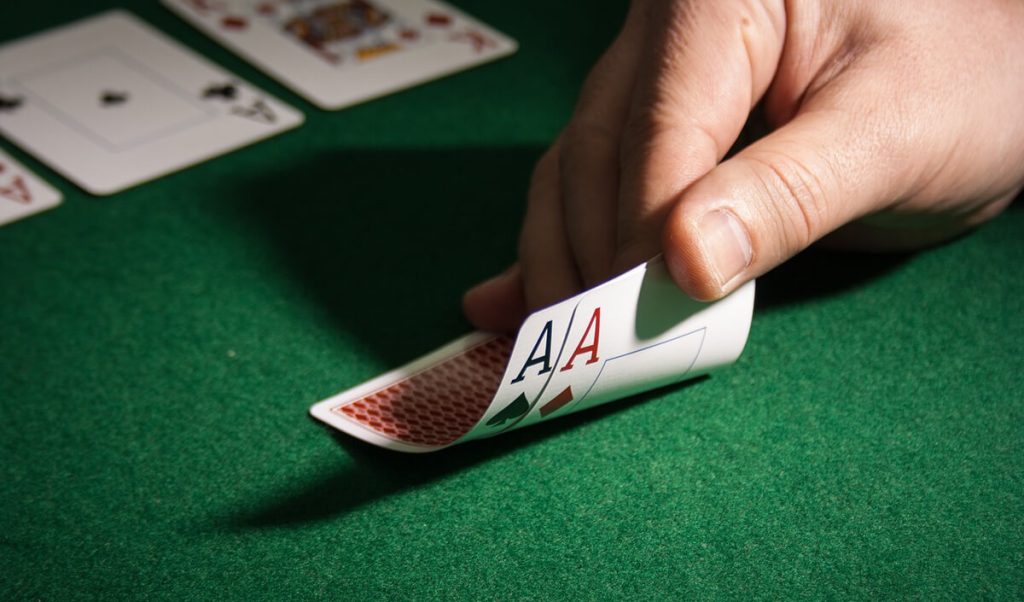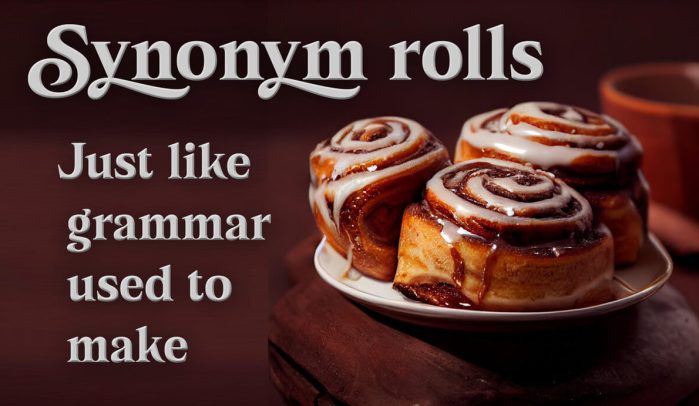Synonym rolls. Just like grammar used to make is a meme created in 2014. It all started with a social media post in which the user had misspelt the word ‘cinnamon’ as ‘synonym’.
This kind of mistake is called a malapropism. Malapropisms are often used in comedy, but they’re not so funny when you use them in your business copy. Because bad grammar and other annoyances in your copy can end up commanding more attention than your message.
Is bad copywriting letting you down?
I recently asked my LinkedIn community about their biggest copy grumbles: the things that make them shudder when they see them written down and that rationally or irrationally annoy them.
These are the things that could be distracting your audience from your message. Sometimes prompting a snigger, but usually just making you look sloppy and careless.
So what are these copy grumbles, have you made any and, if so, how do you fix them?
How to fix bad grammar and other annoyances in your copy
These are the mistakes my LinkedIn community and I find distracting when we read your copy. It’s not an exhaustive list, but I plan to add to it whenever I see something new.
Using ‘&’ instead of ‘and’
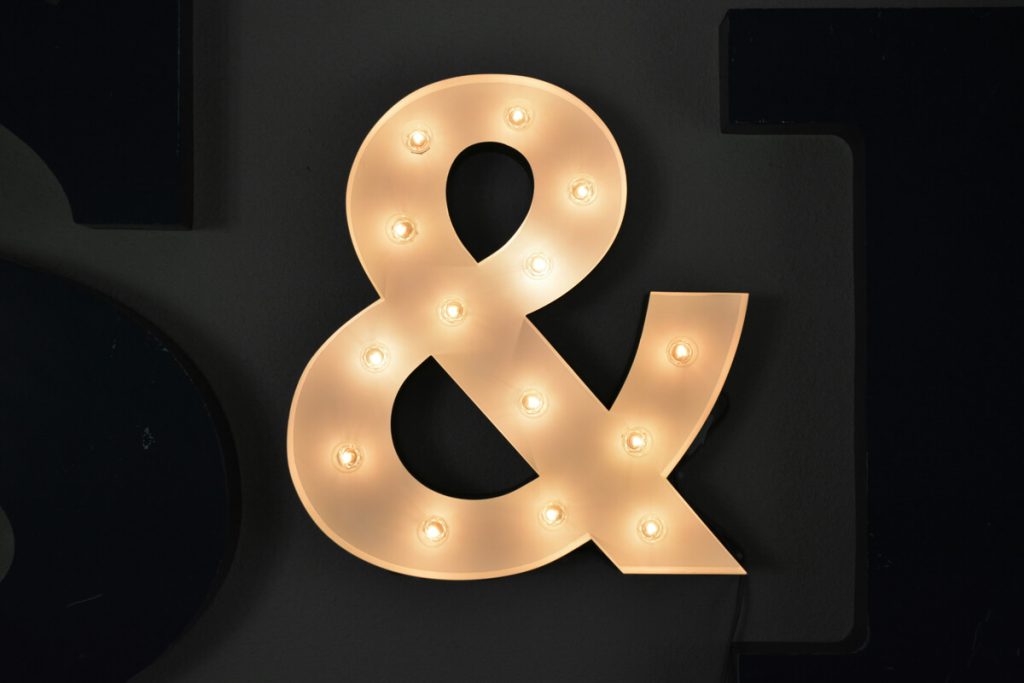
This symbol is called an ampersand
There are some occasions when using an ampersand is okay.
For example:
- In a business name or product name — like, Dolce & Gabanna
- When writing a tweet or text message — yes&no lol
- In a heading, if you need to save space.
But, many times, I’ve seen them used in regular body copy in place of the word ‘and’. This has been on websites, in emails & even all over our local Tory candidate’s election leaflet.
It looks weird, it comes across as lazy & your readers will be judging you for it. So, for all our sakes, please take an extra second & spell out the damn word — a-n-d — okay?
Random capitalisation
When people don’t know how to use Capital letters, they seem to use them Randomly and where they’re not Actually needed. This can be incredibly jarring and Distracting for your Readers.
When to use capital letters
There are specific occasions when you need a capital letter. The rest of the time, you don’t.
Here are some of the most common ones:
At the beginning of a sentence
Whenever you start a new sentence, the first word should start with a capital letter.
People’s names
Tom Cruise, Reese Witherspoon, Mr Benn, Mrs Tiggywinkle etc.
Place names
Covent Garden, London, England, Europe, America, etc.
Months and days of the week
January, February, March etc. Monday, Tuesday, Wednesday etc.
Religious holidays
Christmas, Easter, Eid, Diwali etc.
Full names of institutions
Alder Hey Hospital, Sheffield University, Wormwood Scrubs Prison etc.
Acronyms and abbreviations
RSPB, NASA, BBC, NSPCC etc.
Titles
In this case, you would normally capitalise the first letters of the first word and any other important words.
A Star is Born, Celebrity Masterchef, The Notebook, Only Murders in the Building etc
Writing all in upper case

WHEN YOU WRITE ALL IN UPPER CASE, IT LOOKS LIKE YOU’RE SHOUTING AND PROBABLY ANGRY. WE FEEL LIKE WE WANT TO CALM YOU DOWN AND GIVE YOU A BISCUIT.
SERIOUSLY, THOUGH, WRITING LIKE THIS MAKES IT HARD FOR YOUR READERS — ESPECIALLY IF THEY’RE DYSLEXIC. AND IF IT’S TOO DIFFICULT, YOU’LL LOSE THEM. CAPICHE?
Writing all in lowercase
writing all in lower case, like this, makes it hard on your readers. without any capital letters, it’s more difficult to see the beginnings of new sentences and much more difficult to skim-read.
“but it’s our house style”, you say.
house style, my arse. you might think it’s cool and edgy, but if it’s laborious to read, your readers won’t read it. and that makes it a complete waste of time.
Misuse of apostrophes
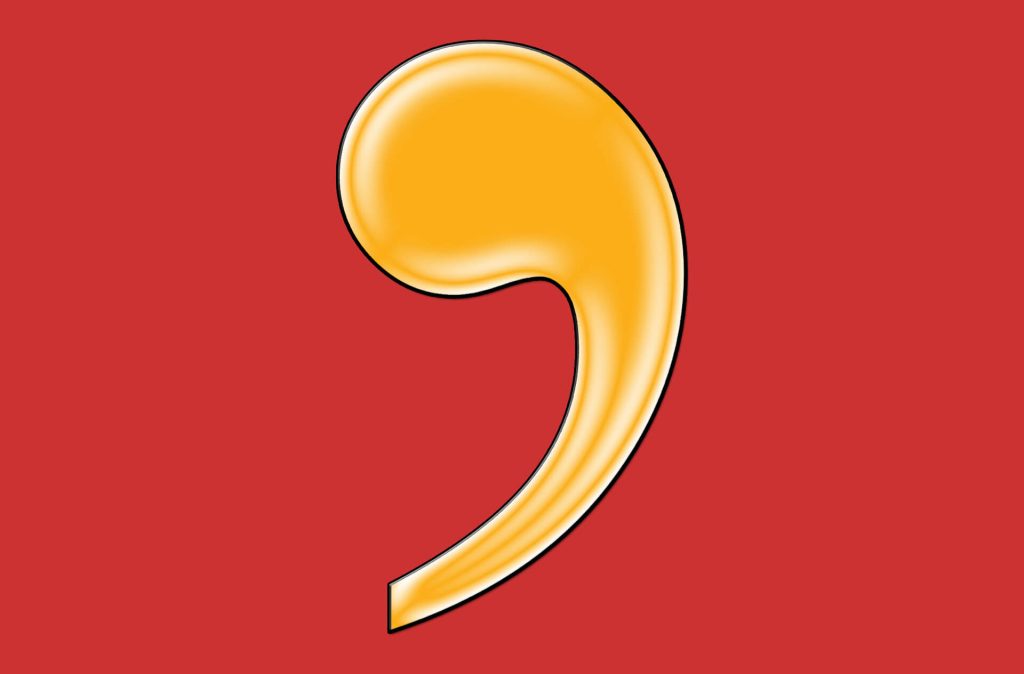
90’s, MOT’s, No Bicycle’s, Open Sunday’s, Pie’s and Burgers, Nobodies Perfect. I could go on…
These are all wrong.
Grammar nerds see this everywhere and it makes us wince. In fact, when we see it, we’re instantly distracted and much less likely to see you as a serious business. Fact.
Louder for the people at the back: you don’t need an apostrophe to indicate a plural.
When to use an apostrophe
There are only three occasions when you need to use an apostrophe.
1. To replace letters in a contraction
We use contractions in conversational copy to make it sound more like the way we speak.
Like this:
- It is or it has —> it’s
- Do not —> don’t
- We are —> we’re
- Nobody is —> nobody’s.
2. To show belonging (singular)
When something belongs to one person or thing, you put the apostrophe before the ‘s’.
Like this:
- The company’s office
- The city’s bus service
- The dog’s kennel
- Mary’s little lamb.
3. To show belonging (multiple)
When something belongs to multiple individuals or things, you put the apostrophe after the ‘s’.
Like this:
- The cheerleaders’ pom-poms rustled
- The ladies’ toilet is closed for cleaning
- The pensioners’ bingo finished at eight o’clock
- The race cars’ engines roared.
Sometimes the word for multiple individuals is already a plural — like men and children, for example. In these cases you could put the apostrophe before the ‘s’
Like this:
- The men’s toilet is closed for cleaning
- The children’s disco starts at seven.
But some argue that you don’t need an apostrophe here because men’s and children’s can’t have any other meaning.
So you could also write it like this:
- The mens toilet is closed for cleaning
- The childrens disco starts at seven.
Just make sure you stay consistent with whichever version you choose.
Using could of, would of, or should of
It’s not of, it’s have.
Could have, would have, should have.
The word of is a preposition and doesn’t function grammatically here.
The word have is a verb, which makes the phrase correct.
The confusion comes from the contractions: could’ve, would’ve and should’ve — which sound kinda like could of, would of and should of when you say them quickly.
Confusing ‘lose’ and ‘loose’

People often use the word loose when when they mean lose.
The word lose is related to loss.
The word loose is the opposite of tight and under control.
You can lose your keys, but you can’t loose your keys.
You can have a loose screw, but not a lose screw.
If you lose a lot of weight, your jeans will be loose and baggy.
Confusing ‘there’, ‘their’ and ‘they’re’
The words there, their and they’re are often used incorrectly and interchangeably. But they’re all different and have different meanings.
Here’s how to use them correctly:
There —> it’s over there, we went there
Their —> it’s their car, it belongs to them
They’re —> they’re watching television — a contraction of they are.
Confusing ‘to’, ‘too’, and ‘two’
These three little words are often confused.
Here’s how to use them correctly:
To —> she’s going to the library to study. She prefers it to studying at home.
Too —> she studies at the library and she invited me, too. But the library is too quiet for me.
Two —> I live at number two. I have two hands and two feet.
Confusing ‘your’ and ‘you’re’
It seems so many people don’t understand the difference between these two words.
Here’s how to use them correctly:
Your —> it’s your car, it belongs to you.
You’re —> you’re being unreasonable — a contraction of you are.
Shortening words for no reason
Some people are annoyed by words being unnecessarily shortened in copy.
For example:
- Vacay —> vacation
- Luv —> love
- Info —> information
- Totes —> totally.
I’ve yet to see examples of these in the wild, but it does make me question, how informal and conversational your copy should be. And whether there’s a line we shouldn’t cross to avoid alienating certain segments of our audience.
Using ‘less’ when it should be ‘fewer’
Yes, less and fewer both mean less, but, grammatically, we use them differently.
We use less when we’re talking about something we can’t count in numbers.
For example, you’d say:
- We had less time to study
- I’d prefer less milk on my cereal
- I want to feel less stressed.
We use fewer when we’re talking about something we can count in numbers.
For example, you’d say:
- There were fewer biscuits in the box
- This till is for five items or fewer
- We had fewer attendees than last year.
Not using the Oxford comma
The Oxford comma is a controversial inclusion on this list.
You see, some people use it all the time; some actively avoid using it; and some people use it, but only when strictly necessary. Then, of course, there are the people who don’t know what it is or how to use it.
What is an Oxford comma?
The Oxford comma is a comma used before the and or or in a list of three or more items.
For example:
- Without the Oxford comma:
I bought bread, tomatoes and olive oil.
- With the Oxford comma:
I bought bread, tomatoes, and olive oil.
In this example, it could be argued that you don’t technically need an Oxford comma because all the items listed are distinct and separate.
But what about here?
- Without the Oxford comma:
Her inspiration comes from her parents, Batman and Dolly Parton.
This sentence reads like Batman and Dolly Parton are her parents, which would be cool, but isn’t grammatically correct. So, in this case, you would need an Oxford comma.
- With the Oxford comma:
My inspiration comes from my parents, Batman, and Dolly Parton.
In this sentence, the Oxford comma splits my parents, Batman, and Dolly Parton into three separate entities. But if you want to avoid having an Oxford comma, you could phrase it a different way.
- Avoiding the Oxford comma:
My inspiration comes from my parents, from Batman and from Dolly Parton.
Although some would argue you should have an Oxford comma here as well.
See? No pleasing some people!
Who the hell wrote this and why does she care so much?
I’m Jenny Lucas, a freelance copywriter based in Leicester, UK.
I’m by no means a grammar pedant, but I do like things done proper.
So your audience gets to focus on what you have to say, rather than how you’re saying it.
Here’s where you can find out more:
Learn more about the work I do >>
See some examples of my work >>
Get in touch to discuss a project >>
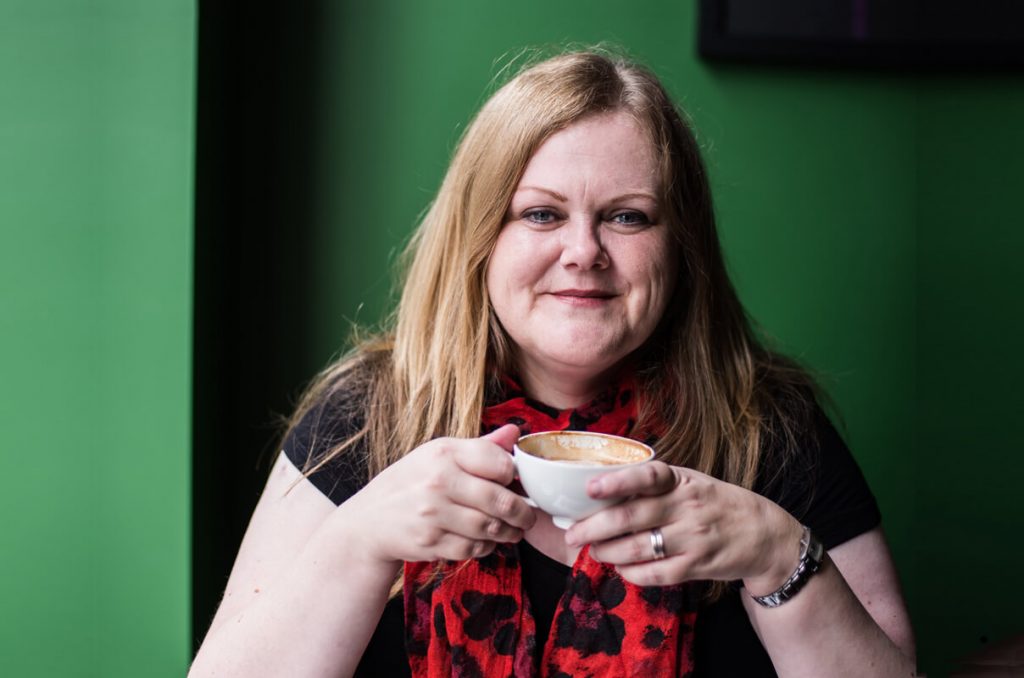
You might also like:

